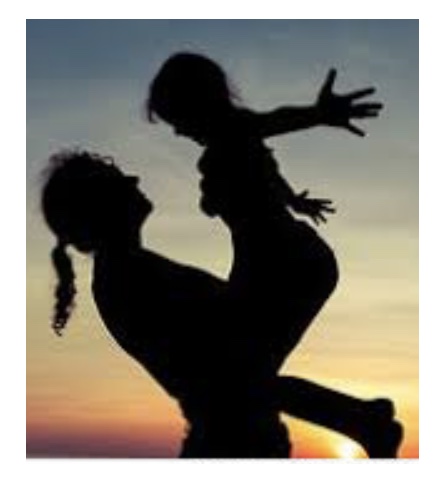“There are only four kinds of people in the world: Those who have been caregivers. Those who
are currently caregivers. Those who will be caregivers, and those who will need a caregiver.”
– Rosalyn Carter
After caring for her father who passed from terminal leukemia when she was just 12 years old, Rosalyn Carter found herself caring for her widowed elderly grandfather. These early life experiences prompted former First Lady Rosalyn Carter to start the Rosalyn Carter Institute for Caregivers (RCIFG).
According to the RCIFG, there are currently 53 million caregivers in America. While each caregiver experience has its own unique set of circumstances, there are some experiences that were shared across cultures and disease-type. Issues such as finding time for self-care, building a caregiver support community, juggling complex schedules, increased financial burden, missing work, having to leave the workforce prematurely, or having to return to the workforce, possible feelings of exhaustion, guilt, resentment, and alienation from friends and family are some commonly reported experiences. Interestingly, in spite of the large number of caregivers in the US, the feeling most often communicated is that of isolation.
Here at MPNA&EI we want you to know that caregivers are in good company. We will have our first monthly online caregiver support group meeting on Thursday, February 15th from 12:00-1:00 pm EST. We would like this first meeting to be a time to connect, share information and set up for our subsequent meetings. Over the course of the year, we will discuss a range of topics from building relationships with professional caregivers to increase cooperation, understanding, and support, learning ways to cope with the stressors of being a caregiver, accessing resources, discovering ways to work together with others to reduce frustrations and barriers in the caregiver role, sharing common concerns, and most importantly recognizing that caregivers are not alone.
In the meantime, here are 10 tips for caregivers from the Caregiver Action Network:
- Connect with other caregivers (which you can do at our caregiver support group meeting on February 15th)
- Don’t forget to take care of your own health.
- Accept offers to help and suggest things people can do to help.
- Learn how to communicate effectively with doctors.
- Be open to new technologies that could help.
- Watch for signs of depression.
- Take breaks.
- Organize medical information so it’s up-to-date and easy to find.
- Make sure legal documents are in order
- Give yourself credit for doing the best you can at one of the toughest jobs!

 No one can prepare you for a cancer diagnosis of a child. Our daughter was four years old and began to complain about headaches. I assumed it was her eyes and made an appointment with an optometrist. Her sight was perfectly normal. A visit to her pediatrician lasted an hour with little insight, only suggestions to watch her diet, limit TV time and give her lots of water. She rarely watched TV and carried water with her throughout the day. Our diet doesn’t include sugar except from fresh fruit and we don’t eat boxed or canned food. I wasn’t optimistic. Eventually, her headaches became more severe on occasion, similar to migraines. We were sent to a neurologist. He requested blood work after she underwent an MRI. Thankfully, the blood work identified the problem-ET or essential thrombocythemia. We had never heard of it and had no idea what this meant for the future. A hematologist became our savior. With the proper diagnosis and medication, our daughter began to feel better, albeit a few side effects from the meds. Yogurt is a staple to help with GI issues, and a nap and early bedtime help fatigue. Yes, our little girl had what I would call fatigue. Our lives have changed but we do not let her ET control us. We control her ET. We manage her diagnosis as part of our daily lives as we would manage any other chronic disease. That is not to say it’s been easy. We have our moments of fear and doubt, but that doesn’t last as long as it used to. We keep very good records of her doctor visits, her blood levels and her overall health. We ask how she is feeling and pay attention to any changes that could be due to her ET. She is now 12 and enjoying a normal childhood. We are looking at Interferfon as a possible “next protocol,” if we think it will be better for her. We stay informed and are very pleased to see all of the clinical trials and new drugs on the horizon. It’s easy to say don’t panic if your child is diagnosed with an MPN. I would simply say, gather the facts, stay informed, be the voice they cannot be, and remember to take good care of yourself.
No one can prepare you for a cancer diagnosis of a child. Our daughter was four years old and began to complain about headaches. I assumed it was her eyes and made an appointment with an optometrist. Her sight was perfectly normal. A visit to her pediatrician lasted an hour with little insight, only suggestions to watch her diet, limit TV time and give her lots of water. She rarely watched TV and carried water with her throughout the day. Our diet doesn’t include sugar except from fresh fruit and we don’t eat boxed or canned food. I wasn’t optimistic. Eventually, her headaches became more severe on occasion, similar to migraines. We were sent to a neurologist. He requested blood work after she underwent an MRI. Thankfully, the blood work identified the problem-ET or essential thrombocythemia. We had never heard of it and had no idea what this meant for the future. A hematologist became our savior. With the proper diagnosis and medication, our daughter began to feel better, albeit a few side effects from the meds. Yogurt is a staple to help with GI issues, and a nap and early bedtime help fatigue. Yes, our little girl had what I would call fatigue. Our lives have changed but we do not let her ET control us. We control her ET. We manage her diagnosis as part of our daily lives as we would manage any other chronic disease. That is not to say it’s been easy. We have our moments of fear and doubt, but that doesn’t last as long as it used to. We keep very good records of her doctor visits, her blood levels and her overall health. We ask how she is feeling and pay attention to any changes that could be due to her ET. She is now 12 and enjoying a normal childhood. We are looking at Interferfon as a possible “next protocol,” if we think it will be better for her. We stay informed and are very pleased to see all of the clinical trials and new drugs on the horizon. It’s easy to say don’t panic if your child is diagnosed with an MPN. I would simply say, gather the facts, stay informed, be the voice they cannot be, and remember to take good care of yourself.